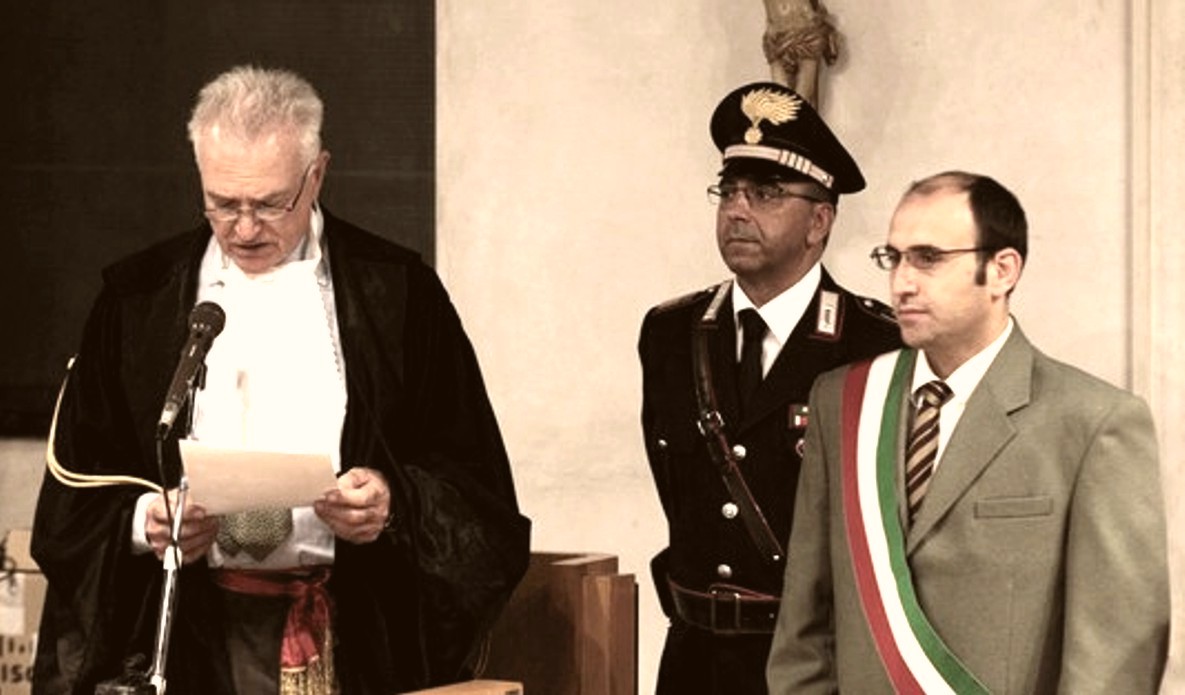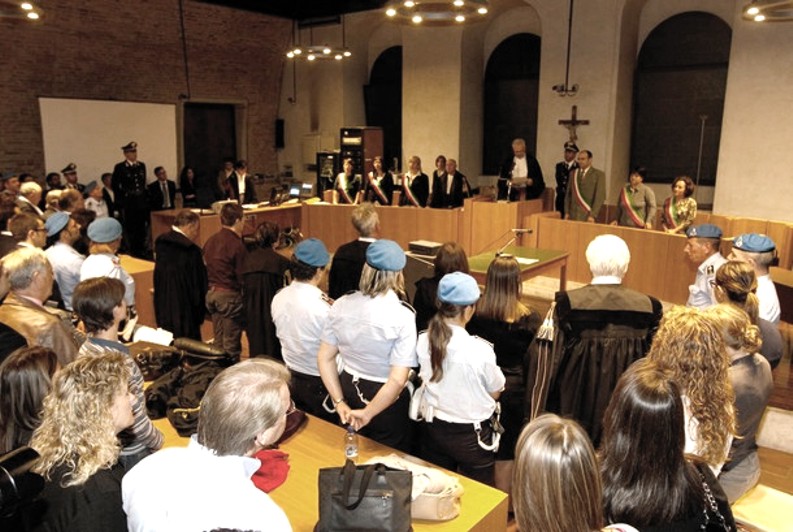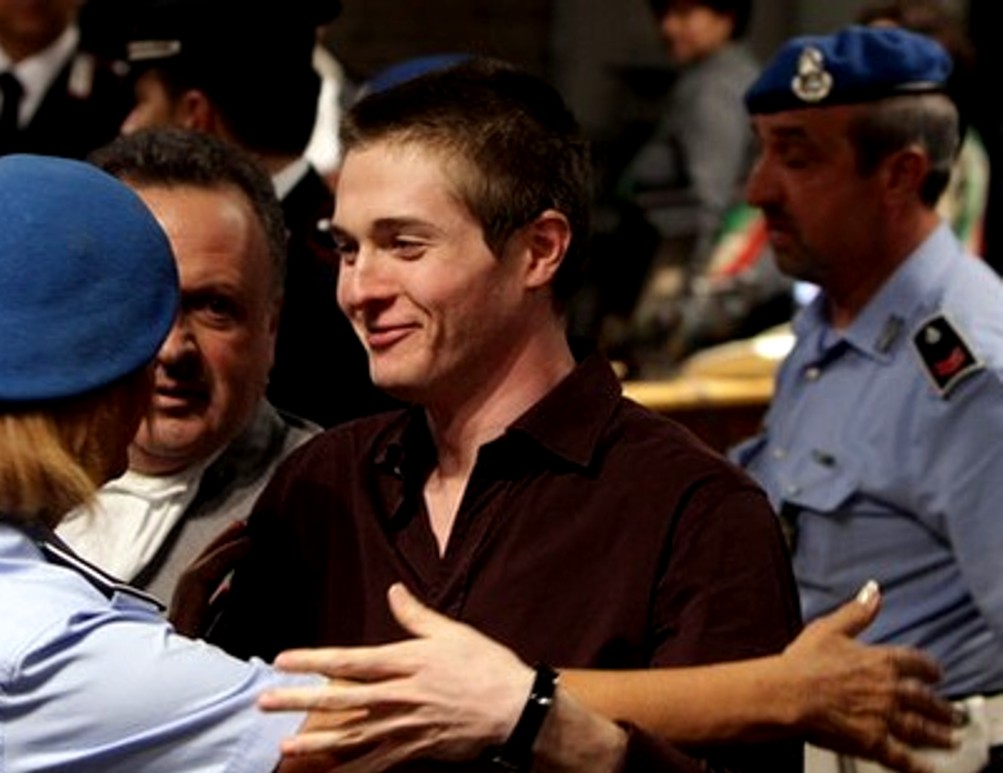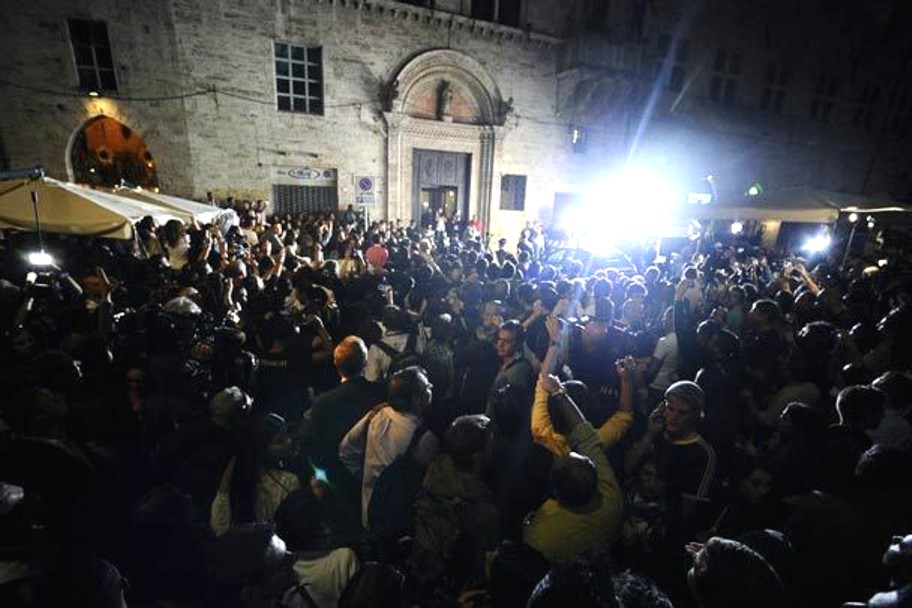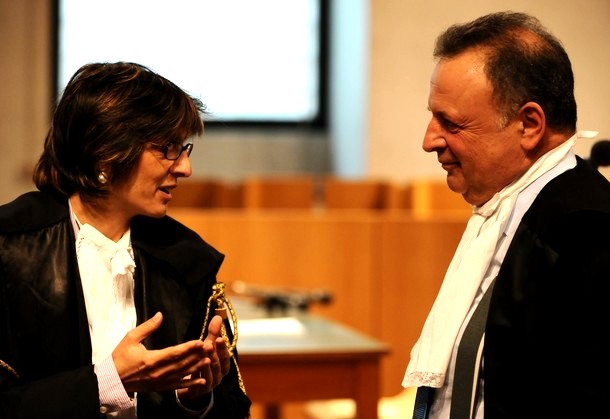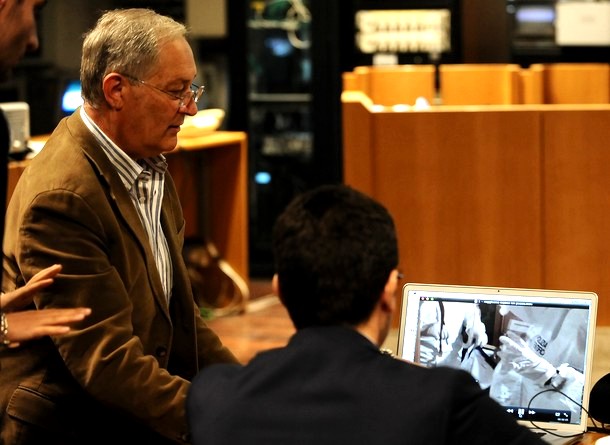
Category: Raff Sollecito
Wednesday, February 15, 2012
Weighing The Ten Points On Which The Perugia Chief Prosecutor’s Supreme Court Appeal Is Based
Posted by brmull
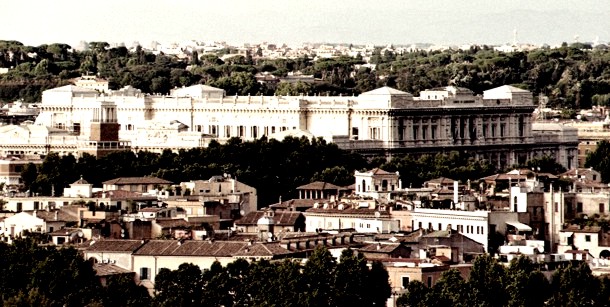
[Above: the Supreme Court of Italy seen from the south-east across the River Tiber]
The Chief Prosecutor and Deputy Chief Prosecutor of Umbria base their formidable appeal on ten points repeated here from ZiaK’s excellent translation below.
The reasons for the appeal to Cassation which Perugia’s General Prosecution presented today against the acquittal verdict of Amanda and Raffaele are based on ten points of the second-level verdict.
The first is the lack of grounds for the decision, in the decree of 18 December 2010, to allow the forensic testimony/expert witness in the appeal judgement.
The second, in contrast, concerns a contrary decision: the decision to not allow a new forensic investigation requested by the prosecution at the end of the ruling discussion. In the appeal to Cassation it is written that the Appeal Court’s rejection reveals “contradictoriness/contrariness and demonstrates manifest illogicality in the grounds for the judgement/reasoning report”.
The other points deal with the decision by the Appeal court of Assizes of Perugia to not hear the witness Aviello, also the definition of “unreliable” [in the Hellman Report] with reference to the witnesses Roberto Quintavalle and and Antonio Curatolo, also the time of death of Meredith Kercher, also on the genetic investigations.
As well as the analyses of the prints and other traces, also the presence of Amanda and Sollecito in via della Pergola, also the simulation of a crime [the staged break-in], and also the exclusion of the aggravating circumstance of the crime of “calumny”.
1. I agree that the appointing of the independent experts was unjustified, because they were essentially just another opinion, a sort of tie-breaker, applying 2011 standards to 2007 evidence, who were revealed to have pre-existing biases about the questions posed to them.
Independent experts should be a piece of evidence, not a final arbiter. I know the Kerchers opposed the appointment of these experts (I don’t know about the prosecution) so clearly they weren’t a consensus choice, as is preferred whenever independent experts are employed.
2. I agree that if Conti and Vecchiotti were allowed to judge the scientific police by 2011 standards, then the court should have allowed testing using highly sensitive 2011 technology. Furthermore Dr. Stefanoni was left to defend her work against the academic experts, without any back-up from Dr. Novelli who is more than a match for the independent experts in terms of credentials.
3. I’m on the fence as to whether the court should have recalled Aviello to discuss why he had recanted his testimony. I don’t know what the legal procedure is when a witness recants while the trial is still underway.
4. I strongly agree that the decision to recall the man in the park, Curatolo, and then determining that the old man’s memory was unreliable four years after the fact, was completely inappropriate. Curatolo’s testimony at the first trial was more than adequate. Nothing was learned from this exercise except that his memory has become worse with time (whose hasn’t?) and that he subsequently got in trouble with the law, which is overly prejudicial.
5. If the court insisted on recalling Curatolo to try to assess his reliability, they should have done the same for the store owner Quintavalle. Instead he was deemed unreliable based on a cherry-picked selection from his 2009 testimony.
6. On the time of death, I’m one of those who believe Hellmann got it right, but it has no bearing on the defendants’ guilt or innocence, since they have no alibi for either time. I look forward to the prosecution’s argument on this.
7. I agree that Hellmann’s decision to accept the defense explanation for the footprints was arbitrary and not justified by his motivations report.
8. The luminol traces in Filomena’s room were improperly determined to be footprints. They were then lumped in with the footprints in the hall without any separate attempt at explanation.
9. I agree that the Court’s determination that the defendents would not lie about being at the cottage, simply because they were “good kids” is outrageous. (In the U.S. you can’t use character evidence to decide innocence or guilt, and doing so would mean a mistrial. I’m not sure about the situation in Italy.)
10. I agree Hellmann’s explanation for the simulation of a crime was a sham, in which he accepted all of the defense arguments and showed no curiosity at all about whether this scenario could actually happen. The court had clearly made up its mind about the case already and decided to just shove the staged break-in, a crucial part of the case, under the rug.
***
*The prosecution also wants to add “aggravating factors” to the charge of calumny. This is a freebie. I don’t know if it will have any bearing on the appeal.
**The fact that Hellmann seems to have applied the “reasonable doubt” standard to individual pieces of evidence, when this should only apply to the case as a whole, seems like a huge basis for appeal. I’m glad to see the prosecution bringing this up.
Perugia’s Excellent Umbria24 Posts Details Of Dr Galati’s Extremely Tough Supreme Court Appeal
Posted by Peter Quennell

Italian lawyers are already remarking that Dr Galati’s appeal as summarised below is as tough as they ever get.
In their view the Hellman report reads more like a defense brief than a balanced appeal-court outcome in a murder trial. Both judges were put on the case on mysterious instructions from Rome, suggesting that the minister of justice had perhaps been leaned on - the judge pushed aside was extremely annoyed.
Both Judge Hellmann and Judge Zanetti, while undeniably good judges in their own fields (business and civil), are vastly less experienced at criminal trials than either Judge Micheli or Judge Massei. The entry in the Italian Wikipedia describes them thus.
Although the Assize Court of Appeal was to be chaired by Dr. Sergio Matteini Chiari, Chairman of the Criminal Division of the Court of Appeal in Perugia, in circumstances not well understood Dr. Claudio Pratillo Hellmann, who chairs the Labor Chamber of the Court, has been called on to preside over the appeal court,
The judge to the side of the main judge, Dr. Massimo Zanetti, came from the Civil Section, and both had had limited experience with criminal trials both rather remote in time (only the cases of Spoleto and Orvieto).
Judge Hellmann’s announcement of the verdict on the night was very odd, suggesting he had been outnumbered and was embarrassed. Remarks he made the next day seemed to confirm that. The weak sentencing report is said to be not his work, and was written by Judge Zanetti.
The Supreme Court of Cassation could insist on a complete new appeal trial or a partial new trial in Perugia if it accepts any of Dr Galati’s arguments at all. His appeal statement appeal is in three tiers, and a reversal could be ordered at any tier..
1. The Hellmann Court’s wide scope was illegally far too wide
Italian judicial code is very clear on this. They MUST stick to just the appealed items and not wander all over the map. Judge Zanetti was quite wrong at the start to declare that everything was open except the fact that Meredith had been murdered.
2. The DNA consultancy by Stefano Conti and Carla Vecchiotti was illegal
Defenses had every chance to attend the Scientific Police testing the first time around. It was a slippery dodge to skip those tests and then slime them. They had every opportunity at trial to throw aspersions. They are not meant to shop around.
3. There are many problems of wrong logic, evidence, and witnesses
The Massei trial sat through weeks and weeks of skilled prosecution presentations of the evidence including the forensic evidence and the many witnesses. The Hellman court got to see almost none of this and heard mostly from the defense.
This translation is from Umbria24 by our main poster ZiaK.
Meredith case: the prosecution appeals to Cassation: the acquittal verdict should be “nullified”.
For the Chief Magistrates of the [Umbria] Prosecution, “it was almost exclusively the defence arguments which were taken heed of”
By Francesca Marruco
The first-level conviction verdict was “complete and thorough” while the verdict of the second-level is “contradictory and illogical”. For this reason, the General Prosecution of Perugia asks the Cassation to revoke or invalidate it.
“We are still extremely convinced that Amanda and Raffaele are co-perpetrators of the murder of Meredith Kercher” said the Chief Prosecutor of Perugia, Giovanni Galati and the Deputy Chief Prosecutor, Giancarlo Costagliola.
Verdict that should be revoked
“The second-level verdict should be annulled/revoked…. There are precise reasons for revoking it”, Mr Galati went on to say. In the Hellman reasoning report on the verdict with which the second-level judges acquitted the ex-boyfriend and girlfriend “there are so many errors, and many omissions. There is inconsistency in the grounds for judgement, which brings us to nothing.”
“It is as if they had ruled ex novo [anew] on Meredith’s murder” added the Deputy Prosecutor, Giancarlo Costagliola, “basing their decision solely on the arguments of the defence.”
“Normally the appeal judge evaluates the reasoning procedure of the first-instance judge and compares it to new elements. But this one missed that out altogether: there is no comparison between the checks carried out in the first and second instances. Only what was carried out during the appeal was evaluated.”
Only defence arguments were taken heed of
For the magistrates, in fact, the second-level judges “took heed, almost exclusively, of the arguments of the defence consultants or the reconstruction hypotheses that were largely to the benefit of the defense theses”.
The prosecutors who authored the appeal [to Cassation] also criticized the “method used”. “The first-instance verdict”, they wrote, “was summarized in just a few lines”,
“The verdict [which we] challenge completely ignored all the other aspects which corresponded with the accusation’s hypothesis, all the aspects which, on the contrary - as was seen in the reasoning report of the first-instance verdict - had been rigorously pointed out and considered by the Assizes Court [trial court] in its decision.”
“In examining the individual [items of] evidence, the challenged sentence has fallen into consistent procedural error in the weaknesses and evident illogicality of the grounds for its decision.”
Prejudice by the two appeal judges
For the General Prosecution magistrates, the second-level [first appeal] judges appear to have shown “a sort of prejudice” with the “infelicitous preamble of the judge [the author], who is supposed to be impartial”, when he declared that “nothing is certain except the death of Meredith Kercher”, which to the others [Mr Galati and Mr Costagliola] is nothing more than “a resounding preview/forecast of the judgement” and a “disconcerting” affirmation.
The ten points of the appealThe reasons for the appeal to Cassation which Perugia’s General Prosecution presented today against the acquittal verdict of Amanda and Raffaele are based on ten points of the second-level verdict.
The first is the lack of grounds for the decision, in the decree of 18 December 2010, to allow the forensic testimony/expert witness in the appeal judgement.
The second, in contrast, concerns a contrary decision: the decision to not allow a new forensic investigation requested by the prosecution at the end of the ruling discussion. In the appeal to Cassation it is written that the Appeal Court’s rejection reveals “contradictoriness/contrariness and demonstrates manifest illogicality in the grounds for the judgement/reasoning report”.
The other points deal with the decision by the Appeal court of Assizes of Perugia to not hear the witness Aviello, also the definition of “unreliable” [in the Hellman Report] with reference to the witnesses Roberto Quintavalle and and Antonio Curatolo, also the time of death of Meredith Kercher, also on the genetic investigations.
As well as the analyses of the prints and other traces, also the presence of Amanda and Sollecito in via della Pergola, also the simulation of a crime [the staged break-in], and also the exclusion of the aggravating circumstance of the crime of “calumny”.
Missing assumption/acceptance of decisive evidence
In the appeal to Cassation there is also mention of the “missing assumption/acceptance of a decisive proof”
In other words, of that proof [presented at trial court] which consisted of “the carrying out of the genetic analysis on the sample taken from the knife by the experts appointed by the Court during the appeal judgement, who did not carry out the analyses of that sample, thus violating a specific request contained in the [orders given to them] when they were assigned to the expert-witness post”
“In the second-level [Hellman] verdict”, the magistrates said, “the judges sought to refer to this in their own way, by speaking of an “experimental method” by which these tests/checks could be carried out.
But this is not the case”, said Deputy Chief Prosecutor Giancarlo Costagliola: “Dr Novelli [the prosecution’s DNA consultant at appeal] spoke of cutting-edge technology, not of experimental methods”.
Tuesday, February 14, 2012
Umbria Attorney-General Galati Files 111-Page Supreme Court Appeal Against Hellmann
Posted by Peter Quennell
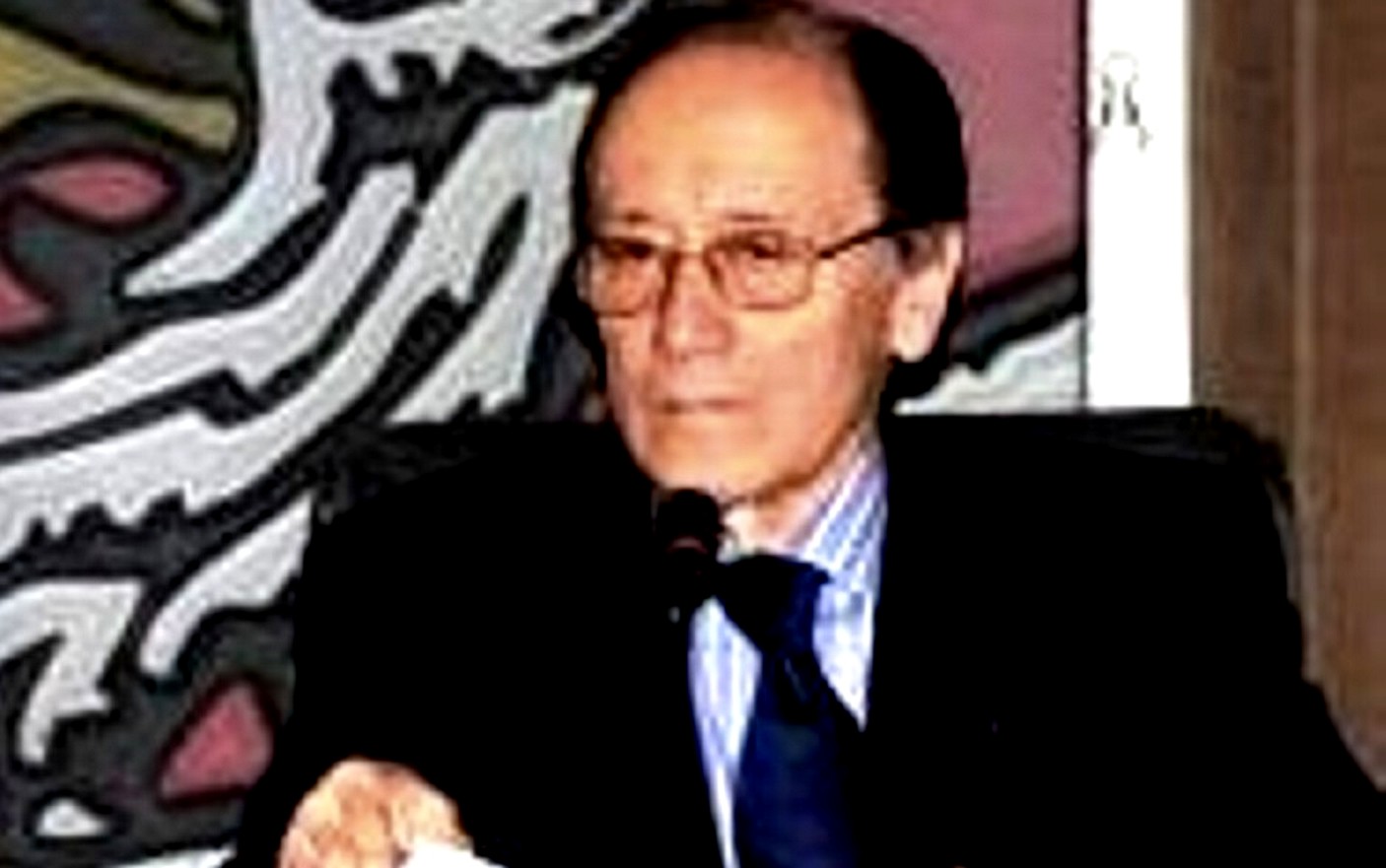
[We are told that this is AG Giovanni Galati at the recent justice info system announcement]
In submitting his 111-page appeal to Cassation Attorney General Giovanni Galati was extremely scathing in his remarks.
What Mr Galati has stated is that the appeal court of Judge Hellman exceeded its appeal mandate by far and tried to run a repeat trial at the first level, without the benefit of all the witnesses or a repeat presentation of evidence and cross-examination.
That overreach claim may resonate very strongly with the Supreme Court of Cassation which has historically repeatedly showed its distaste for first-appeal judges and juries who they seem to think too often overreach and must be restrained.
Cassation would already seem predisposed to any arguments coming from Attorney General Galati, as he was an assistant prosecutor general there, and predisposed against Judge Hellman, who has handled very few criminal cases (apparently none at all involving DNA) and produced previous quirky criminal-trial outcomes.
Book publishers might like to note that this could take two to five years to play out if it bounces back and forward several times between Rome and Perugia. Also that Italy’s law of calunnia may be applied to any wrong claims made in Knox’s and Sollecito’s prospective books.
Knox stated at trial that she was treated well on her interrogation night. Even so she still faces her own charges of calunnia. Her parents likewise. And Sollecito’s parents face a trial for evidence tampering and political manipulation.
Any books would seem to need to be moving targets at best. Maybe no paper version.
Thursday, December 22, 2011
First Italian Criticisms Of The Hellmann Verdict Statement Now Starting To Appear
Posted by Peter Quennell

Early days yet and the main crack at Hellman’s report will not arrive for another month from the prosecution, but the Italian news service Adnknonos offered this editorial. .
The Appeal Court is ridiculous to think that Guede is the only one guilty
The reasons set forth by the Assize Court of Appeal in Perugia for the killing of Meredith read oddly. According to the criminal court Rudy Guede alone did it.
This is ridiculous. Prosecutor Manuela Comodi spoke in court of the ‘embarrassing performance of’ experts’ on the testing of the murder weapon and the victim’s bra clasp.
“Too bad that the judges of the Court of Appeal have slavishly married the thesis of these so-called ‘experts’‘’ says Massimo Montebove, the president of the National Council of Police Unions.
‘‘The work of forensic science, the testimonies, the reconstruction of the truth of the facts of the case carried out to date all show that the verdict of guilty in the first instance was well grounded. ” Mr Montebove added.
Do not forget that attempts at delegitimization will always be directed at the police and the scientific flying squad, including international pressures that many say were placed and other murky development talked about in the media.
One thing is certain: the game is not’ over. We are only sorry that Amanda Knox may not pay for her responsibilities if she is again found guilty following a new appeal trial that could be decided by the Supreme Court
Tuesday, December 20, 2011
Crticism Of The Hellmann Verdict From Meredith’s Family’s Lawyer Francesco Maresca
Posted by ziaK

Mr Maresca made remarks last week critical of the verdict to various Italian media outlets. This is a translation from the Umbria Journal.
Maresca, on Mez: “They were acquitted for lack of proof, but the sentence takes a very one-sided approach”
“Only the defences’ expert witnesses were given any credence. It’s excessive to completely throw out the first instance case”.
The “reasoning report” of the Assizes court of appeal has confirmed that this is a case of an acquittal because of lack of evidence, rather than an acquittal with “formula piena” [approximately “proof of innocence without doubt”]
However it is also a sentence which is a result of a one-sided approach”.
This is the commentary of Francesco Maresca, who together with the lawyer Serena Perna, represents the young victim’s family, on reading of the “reasoning report” on the acquittal of Amanda Knox and Raffaele Sollecito on the charge of having murdered Meredith Kercher.
“This reasoning report”, he added, “leave us with an even more bitter taste in our mouths because we consider that the judges gave credence only to the defence-team experts, even on items of evidence of a scientific nature which were never the object of consultation”.
“For them to have completely tossed out the preliminary investigations and the first-instance trial seems excessive to me”....
“There are no great surprises”, said Prosecutor Manuela Comodi, who was prosecutor in the first and second-level trials. “It seems to me”, she added, “that there is a lot of room to challenge the sentence. That duty [however] lies entirely with the Attorney General.”
Saturday, December 17, 2011
Does A Perverse Fear Factor Account For The Hellmann Jury Breaking The Way It Did?
Posted by Peter Quennell
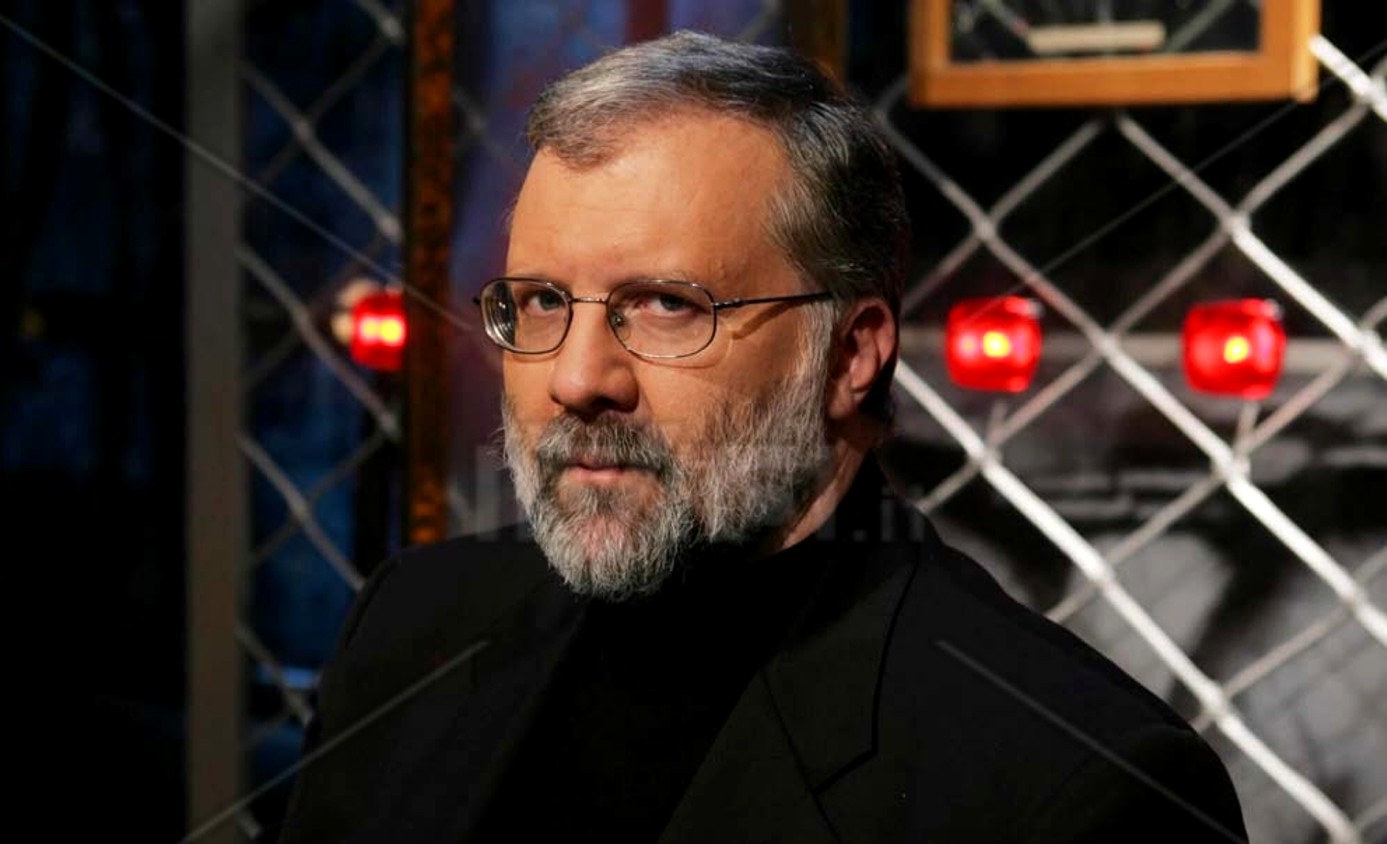
[Above: Italian criminologist Massimo Picozzi, a physician, psychiatrist, professor, author and TV host].
We have already posted on the increasingly notorious CSI Effect.
That’s the phenomenon where these days fearful juries can react ultra-cautiously against multiple ambiguous strands of evidence and become impatient with complex science. Among other things, they don’t want egg on their faces down the road .
Some of us who have now absorbed most of the Hellmann report released yesterday are noting two distinctive themes:
- A garbling of the law and the hard facts (one hard fact Hellmann garbled is that no-one has come close to proving that was Guede’s bare foot print on the bathroom mat, or explained when and why he took his shoes off);
- A sense of a condescending fury by this jury toward the jury at the first level (Massei’s trial panel) and the prosecution’s scientific experts; this is actually not a unique occurrence in Italy where appeals require whole new juries eager to strut their stuff.
Today on the Perugia Murder File Forum the Italian lawyer Yummi in part had this to say:
The parts that I found more dishonest and unacceptable are, however, those in the matter (and their omissions) rather than the mistakes in [legal] procedures. The “probable” attribution of the footprint to Guede is an example of insult to intelligence. I haven’t read thoroughly the entire document yet, but from what I’ve read I can say this document is a sloppy and shameful fraud.
I think what really matters - the actually “true” part of the document - is the conclusion, where the court explain that the reason for the acquittal was they were afraid. They thought they were in danger of making a mistake, they explain they felt unable to eliminate possibility of mistake. Their fear stemming from not being able to see a clear overall picture of the evidence and a motive is everything. Their fear, confusion and uncertainty is the ground for their lack of any indication even of the paragraph 1 or 2 [mandatory reason for the verdict].
Interviewed today by the Italian paper Corriere the eminent Italian criminologist Massimo Picozzi (image above), who knew of the Hellmann verdict but had not yet seen the Hellmann report, predicted very much the same thing.
Picozzi: A debate too technical for the jury
Interview of Massimo Picozzi by Leonardo di Molinelli
Corriere: What of the outcome of Perugia?
“I think it was already decided by the jury when there was a battle between consultants on a very technical issue, the contamination of some DNA.”
The criminologist Massimo Picozzi has not yet read the [Hellman] motivation of the absolution of Amanda Knox and Raffaele Sollecito, but he has a clear idea as to why the appeal outcome contradicted the first level outcome.
“The reasons can be stated in different ways but don’t bend one iota. The judgment is due to the fact that when expert consultants have been in dispute, and not only on the content of [some experts] report but also on the skills and qualifications of those experts, the battle becomes so complex that the jury loses the plot.”
Corriere: A controversy has diverted attention from the crime on a technicality?
“Reducing everything to a technical debate has created confusion that the jury was unable to handle. Often even [court] presidents, judges and magistrates are not as competent technically as the progress of science should require.
The prosecution’s DNA advisor Professor Novelli is a forensic geneticist at the international level. When he challenged the findings of the experts and proposed to the judge a third study, the president of the jury said “No thanks, we have enough.’”
Corriere: There are other cases like this? This is just an Italian problem?
“No. The distortion was introduced by TV series like CSI creating the effect that juries require new technologies but are not always prepared to understand them.
I could tell you that in the United States and Canada they are moving more and more into “neuroimaging” which is exploring uses of the nuclear magnetic resonance of genetic structures of criminals.
At this new frontier the accused can be acquitted because it can be assumed that having an MRI of a certain type and genetic constitution does not allow for the having of free will, and therefore they are acquitted for that failure. “
Corriere: [Norway’s mass murderer Anders] Breivik might be such a case?
“Yes, and behind these things it is easy to see a Lombrosian outcome.” [ed. note: said somewhat jokingly. Cesare Lombroso was an Italian doctor who invented the “antropologia criminale” in which criminals are born rather than self-made. ]
“There are at least a couple of facilities in the U.S. that offer screening based on CT and MRI for the recruitment of top managers. “
Corriere: What is the basic thrust?
“Criminal behavior is determined by a series of neurological factors, biological, genetic. In the U.S. and Canada juries hear battle of genetic structures, amygdala, and more. “
Corriere: It becomes very difficult for jurors to live up to?
“Absolutely, and one ends up saying “But how do we crack the structures of criminal behavior if we do not even know what is normal human behavior?” The latest branch of study that is spreading is neuroethics, the fact that we can have a certain neurological structure which does not have any area for ethical responsibility. “
Corriere: It is disturbing?
“Absolutely, we arrive back at the pre-crime state like that in [the movie] Minority Report. So in the end it does not work. “
Corriere: They were right on the Knox case, the American media?
“No. But we guaranteed that development too. The real problem is the length of our trials. If the [trial and first appeal] are compressed into two years instead of four that will eliminate much of the controversy. “
Corriere: Amanda and Raffaele are innocent?
“I prefer to say that they were found not guilty by one particular jury.”
Wednesday, October 05, 2011
Nancy Grace’s “Miscarriage Of Justice” Observation Goes Viral, Google Says It’s On 38,000 Sites
Posted by Peter Quennell
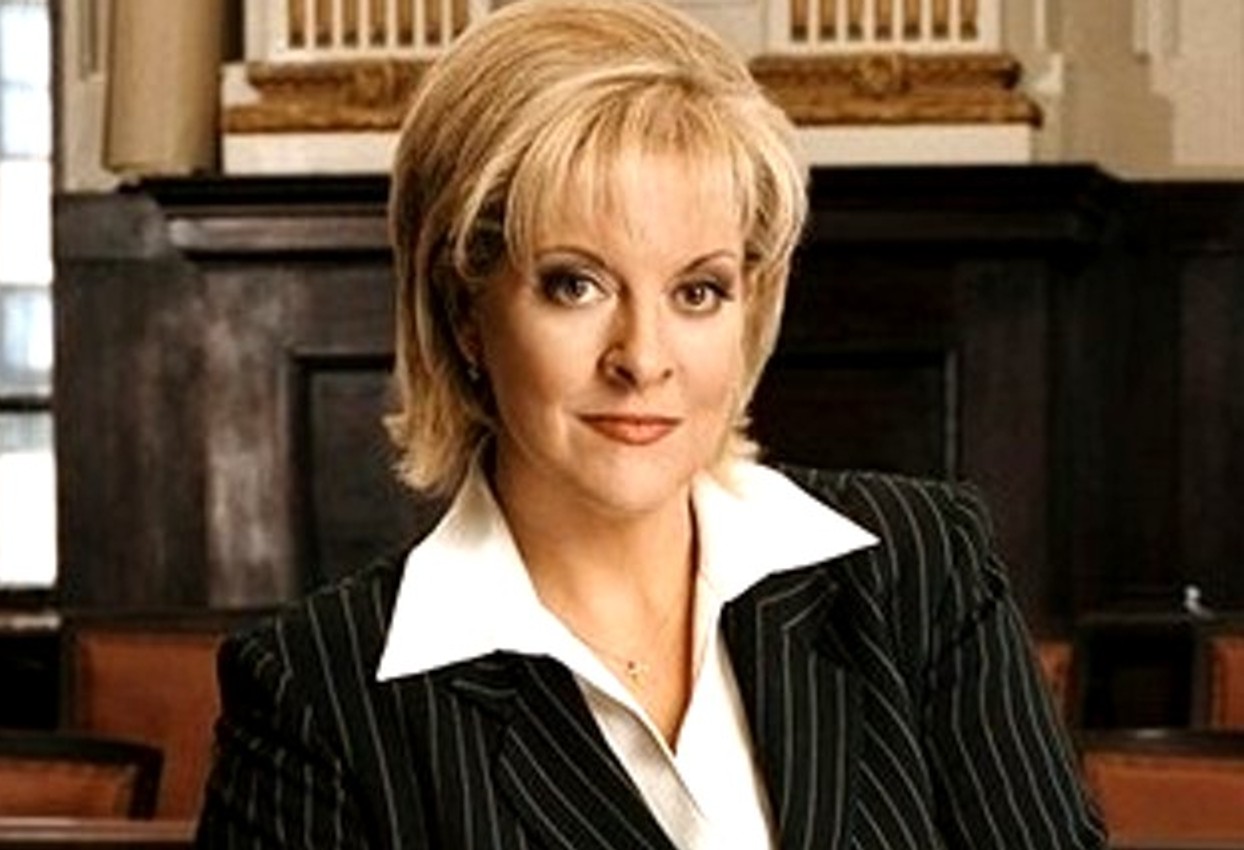
Amanda Knox will be lucky if CNN’s popular legal commentator Nancy Grace doesn’t get on her case the way she still is on Casey Anthony’s.
Nancy Grace says there is NO innnocent explanation for Knox’s second written confession placing her at the house (with Patrick Lumumba) and including observations that only someone who really was there could have known.
We have noticed that time and again commentators have come out batting for Knox, read the evidence, and then gone quiet. Nancy Grace’s CNN colleague Jane Velex-Mitchell had swallowed the Kool Aid at one point, but now she is ambivalent and careful.
Here is Huffington Post Media’s version of what Nancy Grace said last night.
Nancy Grace issued a typically blunt verdict on Amanda Knox during a Monday interview.
The outspoken HLN host and fierce ‘Dancing with the Stars’ competitor declared her true feelings about Knox when she spoke to Access Hollywood following her waltz performance Monday night.
“I was very disturbed, because I think it is a huge miscarriage of justice,” Grace said. “I believe that while Amanda Knox did not wield the knife herself, I think that she was there, with her boyfriend, and that he did the deed, and that she egged him on. That’s what I think happened.”
In Knox’s final plea, she told an Italian appeals court that she was not present the evening her British roommate Meredith Kercher was sexually assaulted and brutally murdered in their shared apartment. Grace said she did not think Knox is telling the truth. “I believe her original statement to the police - that she was there in the home when her roommate was murdered was true,” Grace told Access Hollywood.
Social networks like Twitter and Facebook exploded with celebratory messages on Monday as the judge proclaimed Knox’s innocence, allowing the study abroad student to finally return home to Seattle, Washington after four years in an Italian prison.
Grace was not one of those supporters, saying that while she would love to believe Knox innocent, “I just happen to know the facts.” Grace was even harsher when asked if her show would compete with other networks to get the first Knox interview.
“I’m not trying to get Amanda Knox’s first interview because”¦ my show does not pay for interviews…Second, I don’t think she’s going to tell the truth anyway, so what’s the point?” Grace responded.
THAT will get the noses of thousands of new followers firmly into the REAL evidence. Not all that made-up stuff. Other legal commentators may follow Nancy Grace’s lead, because she is the real pace-setter and power broker in that community.
The equally popular Fox News political and legal commentator Bill O’Reilly discussed the verdict on Monday night with Judge Andrew Napolitano, another prominent commentator. This is from the the summary on Bill O’Reilly’s website.
]Bill O’Reilly] concurred that Amanda Knox likely knows what happened on the night British student Meredith Kercher was murdered; therefore, we shouldn’t really be happy with this outcome since a terrible crime is unsolved.
Pity that Judge Napolitano claimed that Amanda Knox was interrogated as a suspect for 56 hours without an attorney. That did NOT happen. She had an attorney present at all times. Someone please correct him. .
Understanding Yesterday’s Knox/Sollecito Verdict
Posted by Maundy Gregory
For those who have been reading my blog Maundy Gregory it will not come as a surprise when I say I am less then wholly satisfied with yesterday’s acquittal of Amanda Knox and Raffaele Sollecito.
I’m very much with the unruly mob shouting “shame!” outside the courthouse this evening. In spirit, you understand.
I don’t even believe this is a case where a court has erred with two left feet on the wrong side of the fine line between technical and reasonable doubt. I’ll not go into the detail of the evidence, since, over the next few days, that will undoubtedly be done thousands of times with greater inaccuracy than I could ever achieve. But perhaps it suffices to give the view that it is such that no acquittal could have been possible under normal circumstances.
It won’t be possible to know how the decision of the court was reached until it publishes its detailed motivation report. But I find it hard to imagine how it will make sense. The disheartening expectation I have, which I think others will share, it that it will offer the reasoning of a court that has crumpled under the pressure of a public relations campaign. A humiliating day for Italy.
And, of course, a heartbreaking tragedy if you are able to spare a thought for the Kercher family. Tomorrow, one of their daughter’s murderers will fly home to ticker-tape and a small fortune. Another, like the drummer in successful rock band, will take a smaller share of the royalties, but the proceeds, taking into account possible government compensation, may still be enough so that he is at liberty to choose whether or not he ever wants to work in his life or not. Merdith Kercher’s death seems almost reduced to the level of a smart career move.
Yesterday’s verdict will undoubtedly, however, be appealed. That’s more than a speculative exercise, since it does happen than people are acquitted at first appeal and then found guilty by Italy’s supreme court. But the focus of the second appeal will be much narrower, restricted only to questions of law and logic. Although that is construed fairly widely in the Italian system, what it means is that the decision of the appeal court can’t be corrected simply because it is wrong.
It will have to be shown to be legally unsound before any evidence can be re-examined. Until the motivation report from the appeal is published, it is impossible to say what the chances of the prosecutors succeeding in a further appeal might be.
The case, because it has had such a high profile, may have ramifications in Italy for two reasons.
Firstly, even though the reasons for the decision will not officially be known for a few weeks, it can be assumed that the court has rejected entirely the forensic evidence provided by the police. That’s not a small matter. As in most European countries, forensic testing in Italy is centralised, so an implication of the verdict may be that the entire forensic science set-up in the country is simply not fit for purpose or, at least, it wasn’t at the time of the investigation.
A modern forensic science service ought to be able to handle DNA evidence that, as in this case, comes from a very small sample or from an item that had lain in situ for some weeks without difficulty. The Italian police would undoubtedly claim that their forensic teams are as capable as any in the world. I’m not in a position to deny that. But, from a practical point-of-view, if the whole of the scientific aspect of a prosecution is capable of simply crumbling in court, it must be important to try to understand why that happened.
Secondly, reform of the judicial system in Italy is a very live issue, in no small part because Silvio Berlusconi stands accused of various crimes and so he has made judicial reform a priority. I think it is unlikely that Italian public opinion will be behind yestrerday’s verdict and it will be seen by many as an example of how Italian justice is far too lenient with defendants.
Personally, I think Italy should take caution before making too reactionary an interpretation of the Knox/Sollecito case. It may be fair to point out that Italian appeals can tend to be slanted so that the focus for live examination is selected aspects of the defence case, so that much of the prosecution case takes a back seat. And there may be some room for quibbling about certain evidentiary rules applied in the case (the exclusion from evidence of Knox’s false allegations against Patrick Lumumba, for example).
But the decision yesterday can’t just be about a systematic problem. The automaticity of appeals in Italy may indeed favour defendants. But, surely, a guilty person ought to remain guilty regardless of how may re-trials are granted.
If, like me, you’re disheartened by yesterday’s verdict, then I don’t really have much to offer by way of consolation, except the observation that justice is not always done and that’s something we have to live with. And at least you know, next time you kill someone, to think about who is going to do your PR before you think about who your lawyer is going to be.
Monday, October 03, 2011
Knox And Sollecito Declared Not Guilty But With Angry Booing Outside The Courtroom
Posted by Peter Quennell
Tuesday, September 27, 2011
Seventeenth Appeal Session: Tough Day Ahead For Raffaele Sollecito’s Lawyers In The Minefield
Posted by Peter Quennell
Today it will be Giulia Bongiorno and Luca Maori for Raffaele Sollecito. Important considerations to bear in mind:
1) There are still all these open questions assembled by lawyer and main poster SomeAlibi and Sollecito chose not to address them on the stand.
2) The Supreme Court has definitively shut down the argument of a possible lone wolf perpetrator and Guede in court accused Sollecito to his face.
3) Attempts to show that Guede did it with others (Alessi’s testimony) or two or three others did it (Aviello) both descended into farce.
4) A staged attempt by Bongiorno using a staff member to try to scale the wall of the house to Filomena’s window descended into farce.
5) Sollecito referred to Amanda Knox as a liar in his third alibi and in effect implicated her by saying that on the night she was absent for four hours.
6) Solleito has still not explained his phone record or computer record or how his DNA could have got onto Meredith’s bra clasp.
7) Sollecito has still not explained the other physical evidence tying him to the scene: how his bloody footprint ended up on the bathroom mat.
His family faces a trial for releasing an evidence tape to a TV station, and for attempting to subvert justice by involving national politicians. And the family have still not rebutted Aviello’s charge that a bribe was waved at him to testify.
Not a pretty mess, by any means. Good luck, Bongiorno and Maori.

